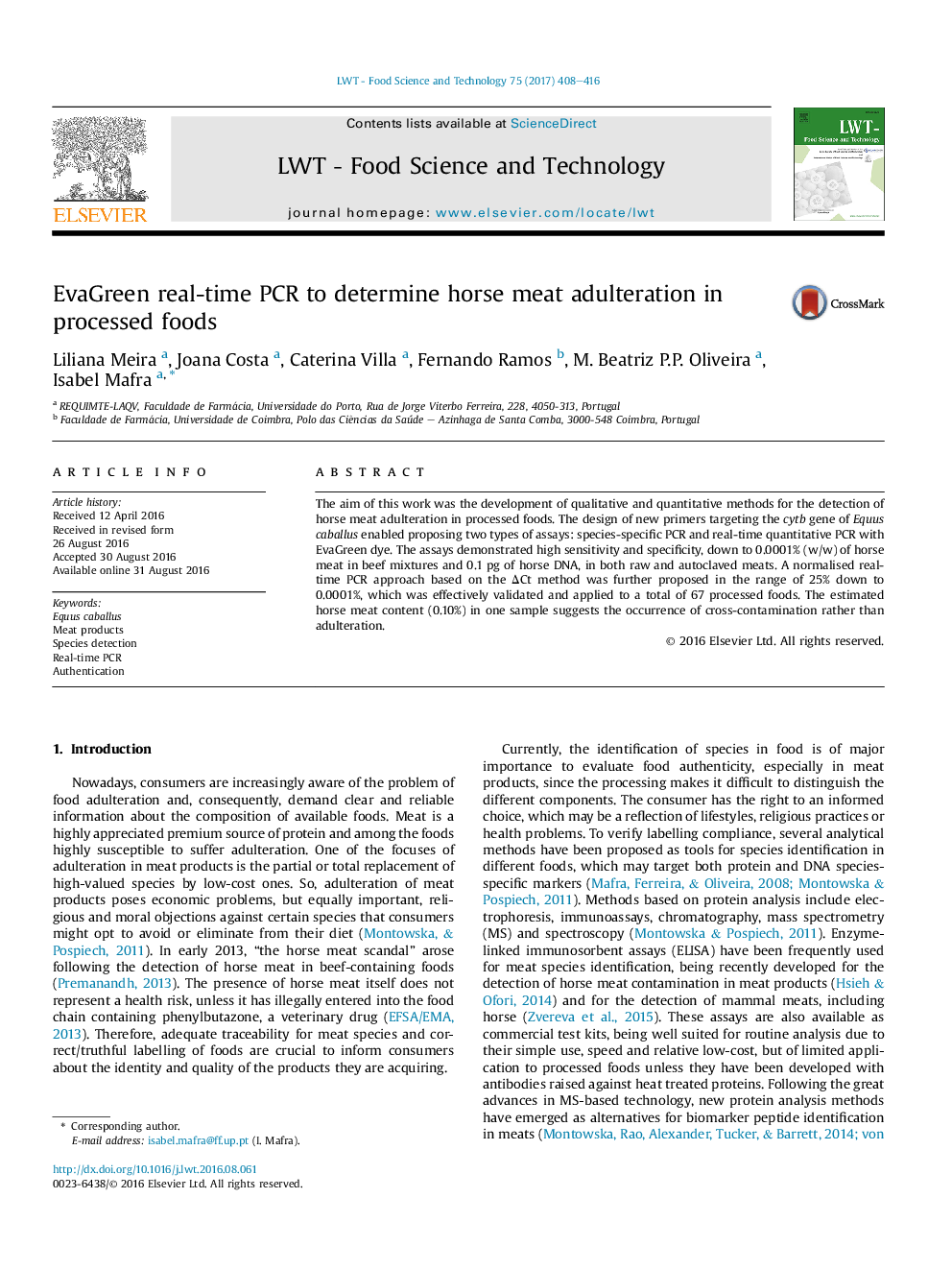| Article ID | Journal | Published Year | Pages | File Type |
|---|---|---|---|---|
| 6400222 | LWT - Food Science and Technology | 2017 | 9 Pages |
â¢Species-specific primers targeting cytb gene for horse authentication.â¢Assays of qualitative PCR and real-time PCR with EvaGreen dye were developed.â¢Effect of thermal processing on method performance was assessed.â¢Normalised quantification of horse meat adulteration.â¢Method validation and application to processed foods.
The aim of this work was the development of qualitative and quantitative methods for the detection of horse meat adulteration in processed foods. The design of new primers targeting the cytb gene of Equus caballus enabled proposing two types of assays: species-specific PCR and real-time quantitative PCR with EvaGreen dye. The assays demonstrated high sensitivity and specificity, down to 0.0001% (w/w) of horse meat in beef mixtures and 0.1Â pg of horse DNA, in both raw and autoclaved meats. A normalised real-time PCR approach based on the ÎCt method was further proposed in the range of 25% down to 0.0001%, which was effectively validated and applied to a total of 67 processed foods. The estimated horse meat content (0.10%) in one sample suggests the occurrence of cross-contamination rather than adulteration.
